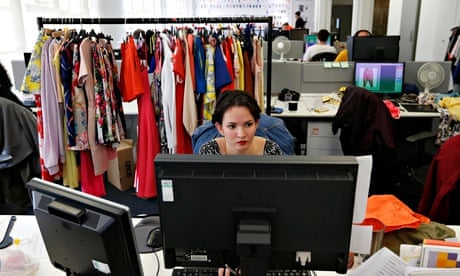Europe has produced 30 technology companies worth more than $1bn (£590m) since the millennium, according to research that explodes the myth that the region's internet entrepreneurs lack vision and sell up too early.
Clothing retailer Asos, games studio King Digital, property portal Zoopla and music service Spotify are among the select group of Europe's most valuable technology companies, most of which remain independent.
The research, conducted by boutique investment bank GP Bullhound, shows Europe compares well to the US, which produced 39 billion-dollar companies between 2003 and 2013.
These valuable startups, which the researchers refer to as "unicorns", are few and far between. Statistically, it is very hard to find one, and the 30 produced in Europe account for just 0.27% of comparable tech firms founded in the last 14 years. (Israel is included in the numbers, due to its strength in tech and proximity to Europe.)
America's hit rate appears lower. A comparable study by startup fund Cowboy Ventures found just 0.07% of venture backed groups started since 2003 had reached billion-dollar valuations.
The UK, with its big domestic market, love of online shopping and high level of internet and smartphone adoption, has been most successful in creating technology millionaires – since January 2000, the country has produced 11 unicorns. Among these are recently listed appliances retailer AO World and takeaway service Just Eat.
Russia is in second place with five unicorns, including Yandex, a highly successful search engine with a larger share of the market than Google. Its equivalent to Amazon, a company founded in 2008 called Ulmart, is said to be considering a London stock market listing next year.
Sweden is in third place with four unicorns, including Spotify, games company Mojang – which makes Minecraft – and the Anglo-Swedish group King, creator of smartphone game Candy Crush. Finland and France have produced two, and Germany, Spain, Ireland, Israel, Italy and Luxembourg one each.
"Europe is much more adept at creating billion-dollar tech companies than most experts expected. The fact that it is in touching distance of the US demonstrates how both the ambition levels and ecosystem have progressed to allow entrepreneurs to scale global businesses," said GP Bullhound co-founder Manish Madhvani.
"The much-voiced criticism of UK tech has been that owners tend to sell out too early to US tech giants. However, this is clearly changing with many companies such as Spotify, Just Eat, Criteo and Zoopla turning down multiple approaches to create true global leaders."
Despite the recent spate of initial public offerings in London, two of the biggest European unicorns have recently turned to Nasdaq and the New York stock exchange for their debut on the public markets. King chose America for its $7bn IPO earlier this year, while online financial information group Markit has picked Nasdaq for its estimated $4.5bn listing.
Chipmaker ARM, worth nearly £13bn, and accounting software group Sage, valued at £4.5bn, are the only computer technology businesses among the FTSE 100 largest companies listed in London. British technology companies have long complained that London lacks analysts and investors with expertise in online and computing.
Only half of European unicorns have reached a sale or an IPO, compared with two-thirds in America, which the researchers say points to a more challenging environment for technology investment.
Building a billion-dollar company appears to be a team effort, with most entrepreneurs working in pairs or teams of three. Many founders start their hit companies in their 30s, with 33 being the average age.
The two European unicorns to have found buyers are Skype, which was acquired by Microsoft for $8.5bn, and Finland's Supercell, which makes mobile game Clash of Clans and was recently bought by Japanese telecoms and internet group Softbank.
